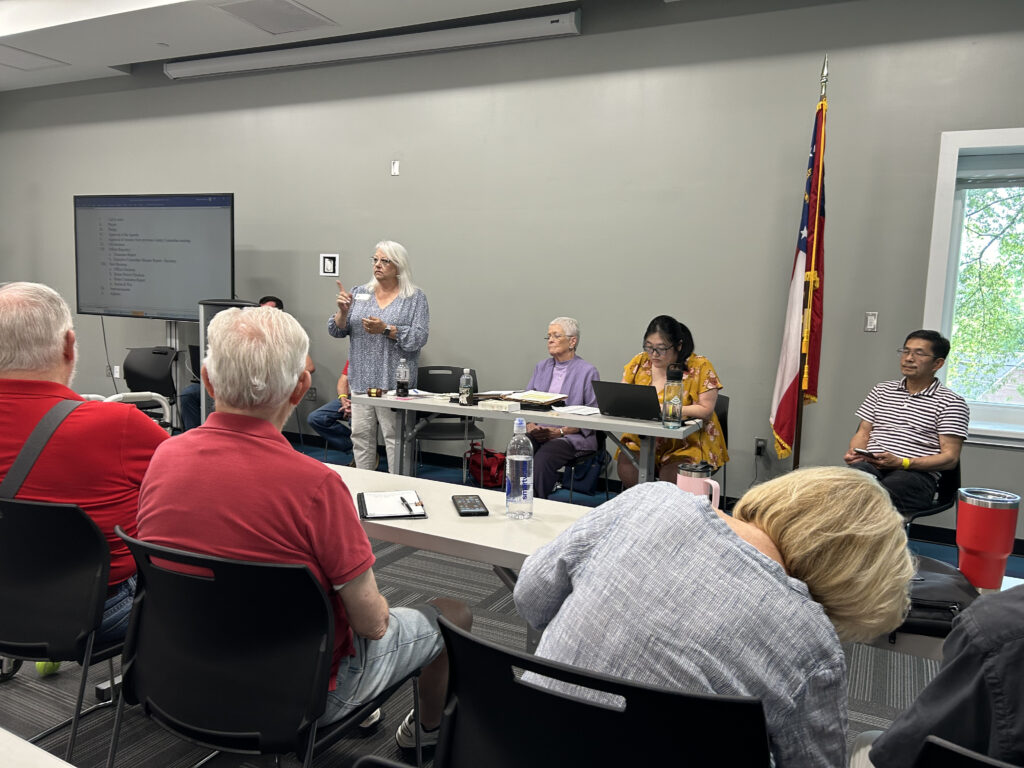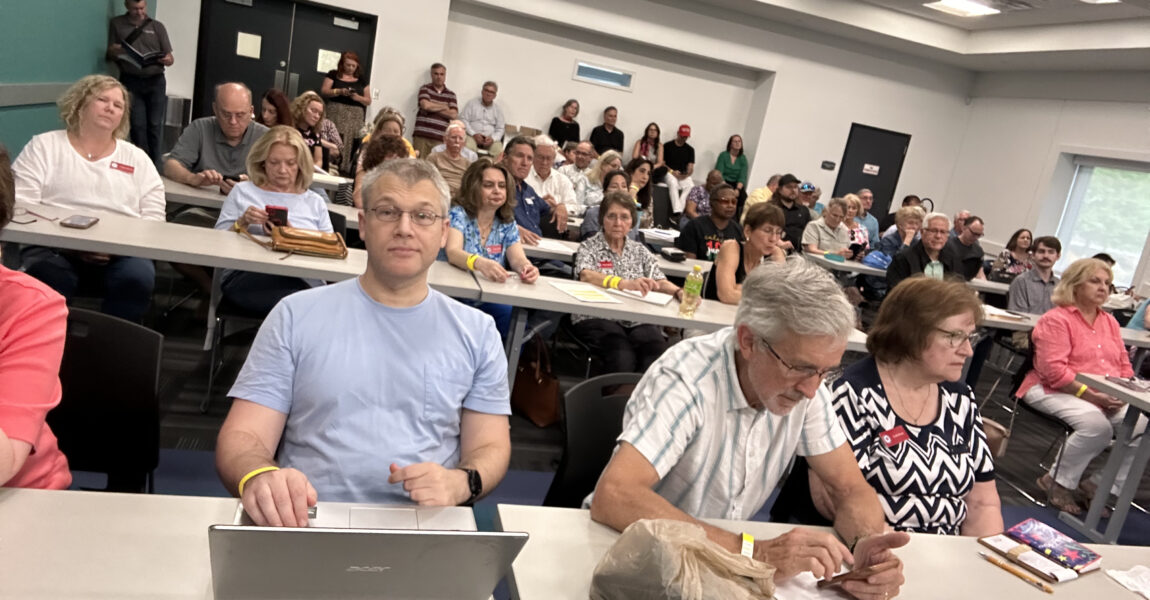
Marietta, GA — The Cobb County GOP Committee met at the Switzer Library Tuesday evening primarily to fill vacancies and to vote on new rules revisions. Most of the business was not controversial, except for the rules changes related to the procedures for adopting resolutions. The meeting was well attended with 116 of the members present at the start of the meeting, although some left before the meeting adjourned.
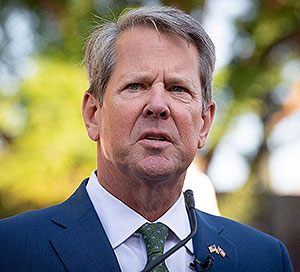
As we have reported a few times before, after the backlash the Cobb GOP received for passing a resolution reprimanding Governor Brian Kemp in September of 2021, Establishment influences in the organization led by Parliamentarian Donna Rowe pressured the committee to pendulum swing and adopt unprecedented cumbersome restrictions on how the body can introduce and pass resolutions. The Governor’s office reacted to the Kemp resolution by ostracizing the Cobb GOP, which made things particularly difficult during the 2022 election cycle.
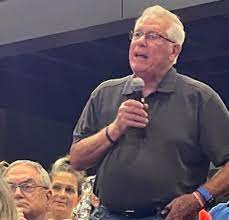
For the last few years, the Cobb GOP Resolutions Committee has not been able to propose resolutions directly to the county committee without first getting approval from the Cobb GOP Executive Committee. Several members of the Resolutions Committee have resigned due to these new egregious limitations that hand-cuffed the committee. On Tuesday the Rules Committee proposed a change to take away that restriction so that the Resolutions Committee could once again propose resolutions directly to the county committee. That proposal was adopted with little controversy, and it’s a correction that has been long over-due. Resolutions Committee Chairman & GRA member Leroy Emkin praised the change and thanked the committee for supporting it.
But other efforts to scale back the restrictions on resolutions were met with resistance by a minority within the committee. Since the rules changes require a two-thirds majority vote to adopt a change to the existing rules, that minority was able to block some of these additional revisions to the rules — albeit narrowly at times.
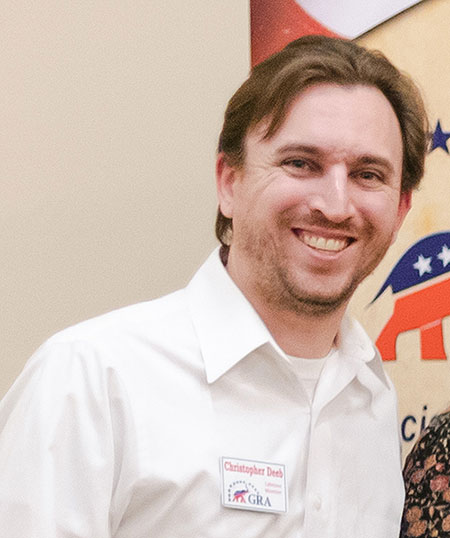
Another unusual restriction on resolutions is a requirement that all resolutions must receive a two-thirds vote to be adopted. Cobb RA President Chris Deeb pointed out that the customary vote needed for passage is a mere 50% +1.
Deeb made a motion to amend the rules to reduce the added requirement of a two-thirds majority to pass resolutions to a simple majority. Most bodies, including the GA GOP State Committee, pass resolutions by a simple majority. Catherine Floam argued against this motion, saying that the body needed to ensure there was a greater consensus from the body when dealing with potentially controversial resolutions.
Some of the committee members might have pointed out that the Kemp resolution that inspired many of these hyper-cautious reactionary restrictions passed with greater than two-thirds majority support, so this restriction would not have changed that outcome.
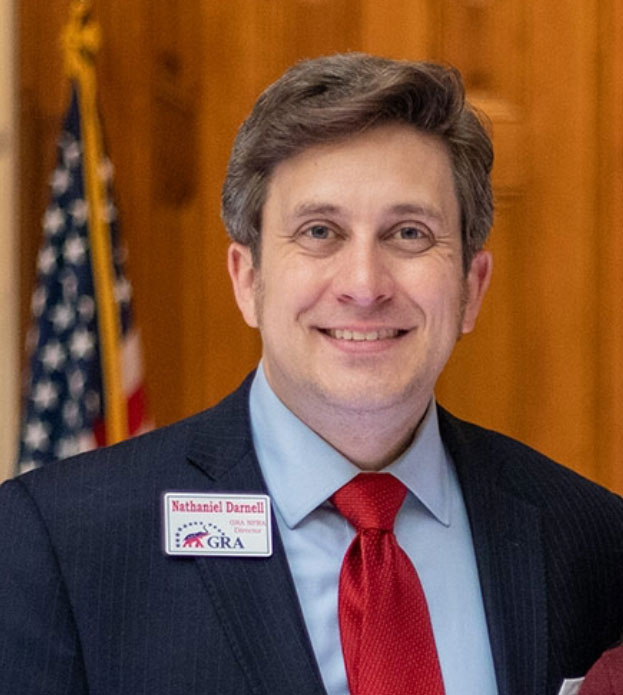
After that motion failed, Cobb RA Chairman Nathaniel Darnell proposed another motion to amend the proposed rules by removing the limitation of the county committee only being allowed to vote on two resolutions per committee meeting. Darnell pointed out that in the recent 14th District GOP Convention, the body passed 13 resolutions, and only two of those received any discussion. He also pointed out that the GA GOP State Committee took up seven resolutions in February, and passed five of them. For those who argued that resolutions don’t matter, Darnell pointed out that the State Committee passed a resolution against registered lobbyists serving on the state Board of Elections, which helped to effectively pressure registered lobbyist Ed Lindsey to recently resign from the board.
Some argued that resolutions don’t help the GOP accomplish what they see as the GOP’s mission: “to elect Republicans.” Darnell responded to this by saying that actually the real mission of the GOP is not to “elect people with an R next to their name, but to ensure that Republican policy is passed into law! We are against socialism, for example, because we are for capitalism! … People are drawn to the GOP because the party supports the issues they care about, and so the GOP must empower their volunteers to speak to their elected officials about those issues.”
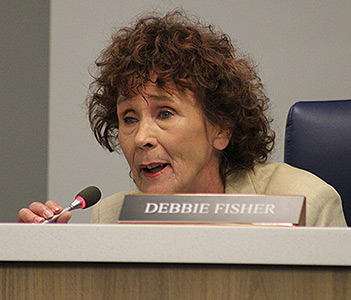
Cobb Board of Elections member & GRA member Debbie Fisher said that the real problem people usually have with resolutions is not the quantity but how long the debate over them can often go. She suggested a compromise to Darnell’s amendment which would add language limiting the debate on individual resolutions to ten minutes per resolution and an hour for all resolutions proposed. Darnell agreed to this compromise and the amendment to remove the quantity limitation on resolutions at county committee meetings passed with the time limitations added.
Darnell also proposed another amendment that would have removed the quantity restriction for resolutions at county GOP conventions. The rules currently put that restriction at four. Supporters of the amendment pointed out that leaving the restriction would induce the Resolutions Committee to look for creative work-arounds, like creating longer “omnibus” resolutions that deal with numerous subjects that may not be directly related.
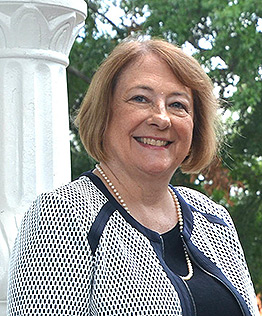
Past Cobb GOP Chairwoman Rose Wing, who the Cobb RA helped to successfully defeat in her re-election bid in 2017 due to her heavy-handed Establishment-oriented leadership, argued in favor of both the two resolution limitation at county committee meetings as well as the four resolution limit at county conventions.
After much debate, Darnell’s second motion to amend passed by a vote of 64 to 45. But the vote to pass the provision as amended came up a little short of the necessary two-third majority to pass. That four-resolution restriction at county conventions will remain in force for the time being.
While we applaud the progress made Tuesday evening to restore the process for the Cobb GOP to pass resolutions, much more needs to be done to simplify this process and bring it back to the free, straight-forward process it has been for decades in our county. Resolutions are an important part of how the grassroots provides feedback to the elected Republican officials at the county, state, and federal level on timely issues facing our civil government, and they should not be muzzled by a minority under the influence of the Establishment.
